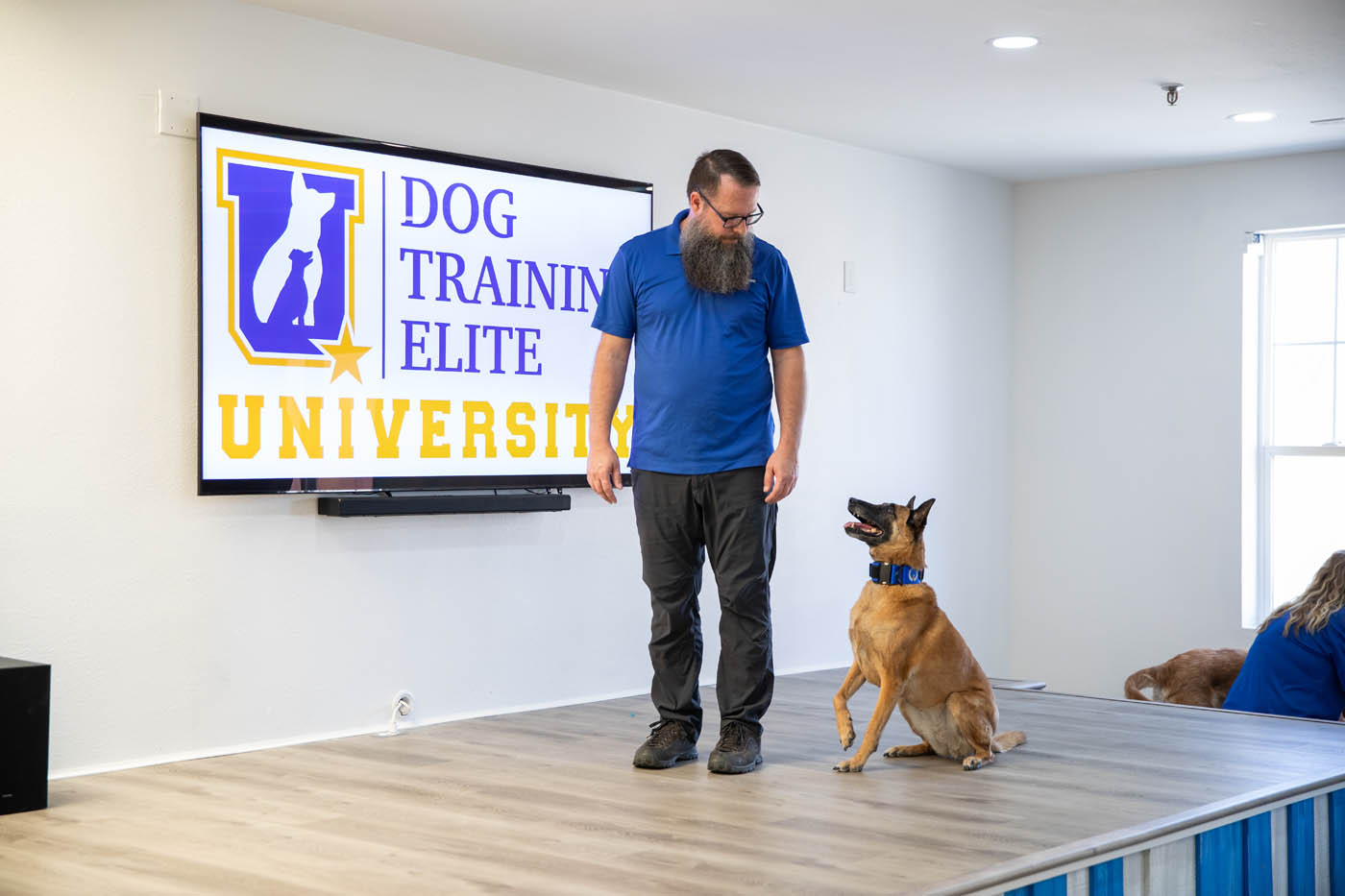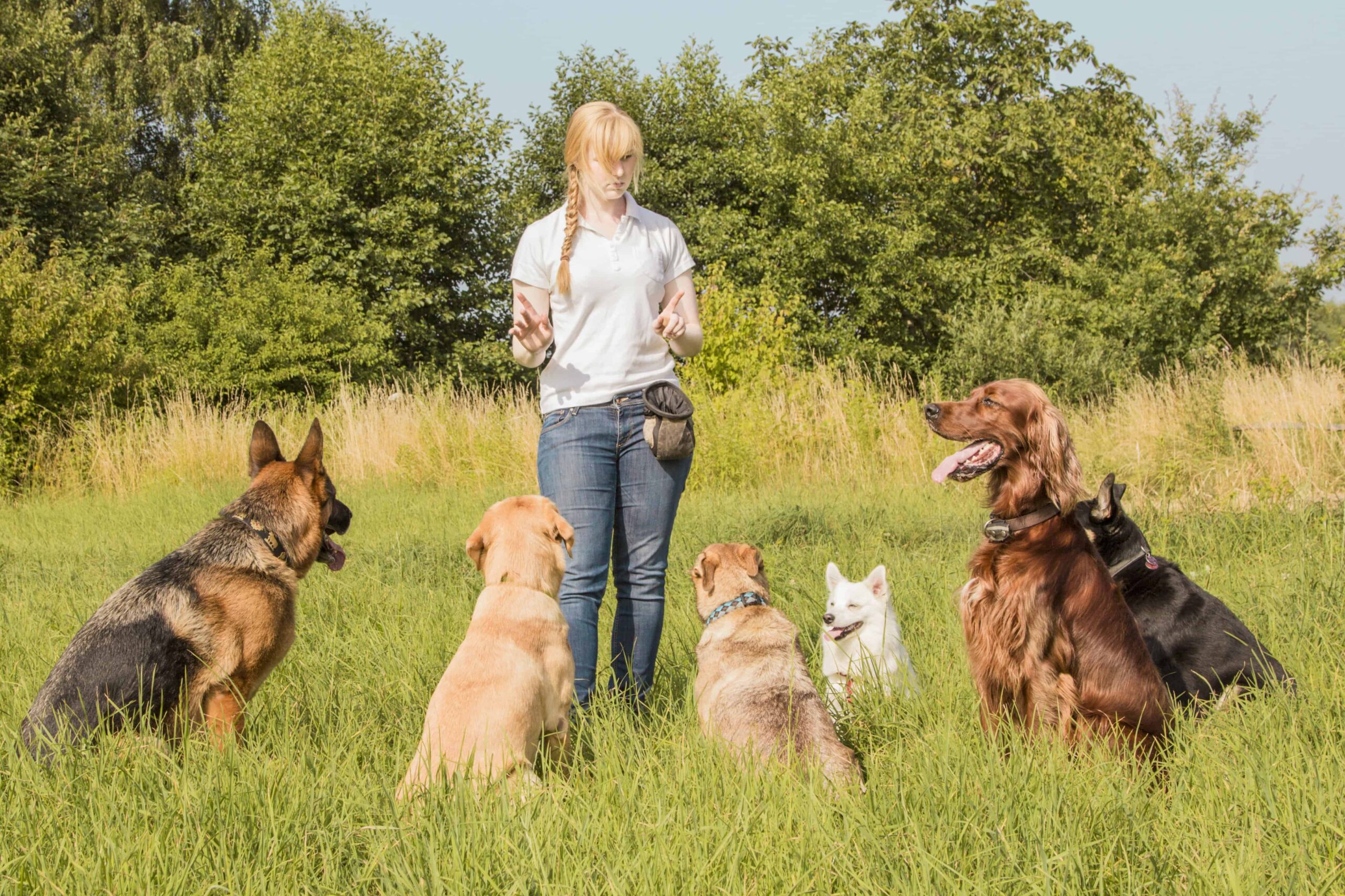Checking Out Options for Dog Training Charlotte: What You Need to Know
Checking Out Options for Dog Training Charlotte: What You Need to Know
Blog Article
The Ultimate Overview to Pet Dog Training: Structure a Happy, Loyal Pet
Reliable dog training is a multifaceted process that pivots on a deep understanding of canine behavior and the application of proven techniques. By embracing favorable support and constant command usage, animal owners can cultivate not just obedience however also a solid, relying on relationship with their pets. Nevertheless, the journey does not finish with basic commands; dealing with behavioral problems and producing a nurturing training setting are just as important parts. As we discover these elements, it ends up being obvious that the course to a mannerly and material canine buddy may hold a lot more intricacies than one might at first think.

Comprehending Canine Habits
Just how does a pet's habits reflect its psychological and psychological state? A pet dog's actions can work as a home window right into its feelings, demands, and general emotional wellness. A wagging tail usually represents joy and exhilaration, while a reduced tail might suggest fear or entry. Vocalizations such as whining or barking can connect a selection of emotions, from happiness to distress.
Body language also plays a vital role in recognizing canine habits. A relaxed pose and open mouth signal comfort, whereas tense muscle mass and pinned ears may recommend anxiety or aggressiveness. Observing these signals is important for identifying the origin of a canine's behavior, whether it comes from excitement, concern, or aggravation.
Furthermore, a pet dog's communication with its setting and various other pets can provide insight into its emotional state. For example, a pet dog that involves happily with other dogs is most likely feeling secure and social, while one that displays avoidance or aggression might be experiencing anxiety or insecurity. Understanding these behavior cues is important for fostering a strong partnership between the proprietor and the animal, eventually adding to the dog's psychological health and wellness and well-being.
Necessary Training Methods
Efficient canine training strategies are necessary for cultivating desirable habits and enhancing the bond between a pet and its proprietor. Utilizing favorable reinforcement is among the most effective methods, where benefits such as treats, praise, or play are provided to enhance wanted actions (dog training charlotte). This encourages the dog to repeat those behaviors, producing a positive learning setting
Uniformity is one more critical component in pet dog training. Commands should be clear and consistent, and all household members must use the exact same regulations to prevent confusing the pet. Timing is equally important; rewards must be offered right away after the wanted habits to develop a clear connection between the reward and the activity.
Furthermore, appealing and brief training sessions work, as pets have varying attention spans. Purpose for sessions of 5 to 15 mins, depending on the pet dog's age and power level. Integrating play right into training can additionally improve inspiration and pleasure for both the proprietor and the pet.
Finally, patience is essential. Dogs discover at their very own pace, and preserving a calm disposition will aid relieve frustration, making sure a favorable training experience. These important methods prepared for successful canine training and a harmonious relationship.
Basic Commands to Instruct

Usage treats, appreciation, and playtime to compensate your dog's successes. By instilling these basic commands, owners outfit their pet dogs with the abilities essential for a unified and well-behaved connection.
Attending To Usual Behavioral Issues
Recognizing and dealing with usual behavioral problems in dogs is vital for fostering an unified connection between animals and their proprietors. Several canines show behaviors such as excessive barking, eating, or aggressiveness, which can come from stress and anxiety, monotony, or absence of correct training. Recognizing the source of these behaviors is the initial step toward effective treatment.
For example, too much barking clicker training birds may suggest a need for attention or a feedback to environmental stimulations. In such instances, proprietors should examine the pet's setting and provide sufficient psychological stimulation, such as interactive toys or regular exercise. Eating can usually be handled by rerouting the habits to appropriate chew things and guaranteeing that the canine has sufficient physical activity to decrease dullness.
Aggressive habits requires mindful handling and might require expert training help. It's vital to comprehend that penalty can aggravate anxiety and aggression, leading to a cycle of behavioral concerns. Rather, concentrate on favorable reinforcement methods to compensate desirable behaviors and reinforce a sense of safety and security.
Building a Positive Training Atmosphere
Producing a positive training atmosphere is basic for enhancing desirable actions in canines and mitigating behavior issues. This atmosphere ought to be characterized by consistency, encouragement, and a clear understanding of the training objectives. By establishing a routine, pets learn what is anticipated of them, which helps pop over here in reducing stress and anxiety and complication.
Making use of favorable reinforcement strategies, such as deals with, praise, and play, fosters a sense of safety and security and motivation in the canine. Rewarding good actions promptly and constantly enhances the desired activities, making the training process extra effective - dog training charlotte. Additionally, fitness instructors need to stay individual and calm, as pets are delicate to their trainers' emotions
The training space should be without disturbances to ensure the pet can concentrate on the jobs available. Take into consideration making use of a peaceful room or a secure exterior location. Additionally, incorporating playtime and socialization into training sessions promotes an all-round method, improving the pet's understanding experience.
Ultimately, a favorable training setting nurtures a strong bond between the dog and trainer, resulting in a loyal, pleased pet. By prioritizing this environment, pet proprietors can efficiently address behavior difficulties and grow an effective training trip.
Final Thought
Effective pet training counts on a thorough understanding of canine actions and the application of positive reinforcement methods. Adopting these principles guarantees a satisfying training experience for both pets and their proprietors.
Reliable dog training is a complex process that pivots on a deep understanding of canine habits and the application of proven techniques. A dog that involves happily with other dogs is most likely feeling social and safe, while one that shows evasion or more info here aggressiveness might be experiencing stress or instability.Effective pet dog training strategies are vital for promoting desirable actions and enhancing the bond in between a canine and its owner.Producing a positive training environment is essential for strengthening desirable behaviors in pets and minimizing behavioral problems.Effective dog training counts on a comprehensive understanding of canine actions and the application of positive reinforcement strategies.
Report this page